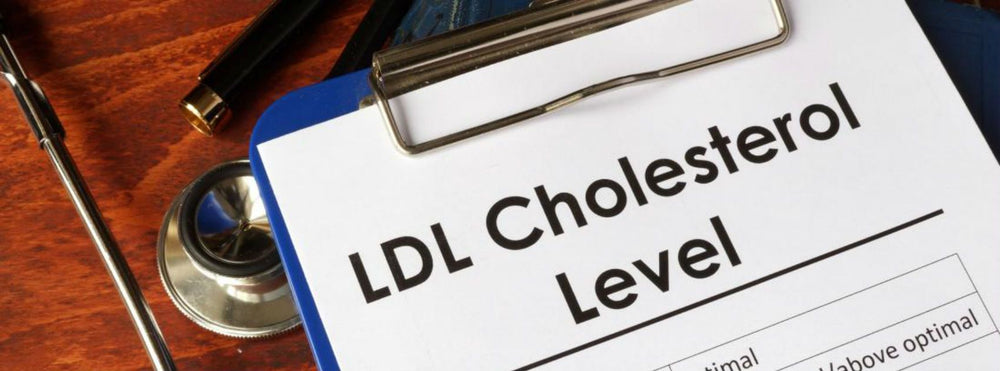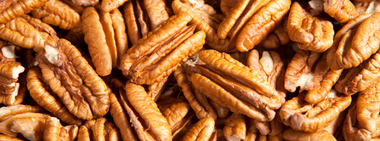How to lower LDL

LDL (low density lipoprotein) cholesterol is the cholesterol that's parking in your arteries and causing blockages to build up. It is also the cholesterol which is toxic to the lining of your arteries (the endothelium), increasing the risk of a heart attack and/or stroke. LDL is the storage form of cholesterol. This is the cholesterol favored for deposition when insulin levels rise. This is also the cholesterol particle that is the target for treatment in patients with coronary artery disease (CAD) or those patients at high risk for developing CAD.
If you recall from a previous blog, 130 mg/dL is the upper limit for LDL that most cardiologists would be comfortable with in someone without any other risk factors for heart disease. As you accumulate risk factors, 100 mg/dL or below is best. If you have documented heart or vascular disease - or you are diabetic - aiming for an LDL below 70 mg/dL is the goal, and getting below 50 mg/dL may have additional risk reduction benefits. An LDL level below 70 is very difficult to achieve with lifestyle changes alone and in many cases requires the use of cholesterol lowering medications.
How can you lower your LDL cholesterol besides just using drugs? By following the exact same advice as for raising your HDL cholesterol. It turns out that a healthful lifestyle has healthful effects on your cholesterol profile regardless of which cholesterol particle we’re talking about. So a healthy diet, regular exercise, and weight control all contribute to lowering LDL. The only thing that works for HDL but NOT for LDL is alcohol consumption. Alcohol intake appears to have little effect on LDL levels – and may even increase LDL levels due to the sugars contained in alcohol stimulating insulin release.
To dispel a myth, many people think that to lower LDL they should reduce cholesterol or fat in their diet. Lowering cholesterol can help, and reducing saturated fat and especially trans fat will make a significant difference. But it's actually far more important to reduce simple/processed carbohydrates and super starchy items (think bagels, white rice, cakes and candy, potatoes, etc.).
In fact some of the worst cholesterol profiles I've seen have been in people eating a low fat/low cholesterol but high processed carb diet!
All carbohydrates get absorbed as sugar and simple/processed carbs are digested and absorbed quickly, leading to blood sugar spikes - which then drives insulin release. Insulin is a storage hormone, pushing our bodies into storage mode. The storage form of cholesterol? LDL. LDL levels go up when insulin levels go up.
But this does NOT mean you should eat a low carb diet! In fact, fiber and plant sterols - which can only be found as part of a carbohydrate package - are important to controlling LDL levels.
You see we have an internal cholesterol circulation that we can leverage to lower LDL: Every time we eat our liver (and gallbladder, if present) dumps bile into the digestive system. Bile is very cholesterol rich. It's one of the things we use circulating LDL to make. But because we are very efficient animals, any bile that's not used up in the digestive process gets reabsorbed. So if there's something we can do to block bile reabsorption, we will need to pull more circulating cholesterol back to the liver to make bile for the next meal and our circulating LDL levels will drop.
This is where fiber and plant sterols come in.
We can't digest fiber. So a bile acid molecule will try to digest a fiber molecule and before the bile acid molecule figures out it's a lost cause, it will have gone past the reabsorption sites -- and get wasted. Plant sterols are natural plant components that are structurally similar enough to bile cholesterol to fool the body into thinking it's bile cholesterol, but just different enough that they can't get absorbed. So they end up occupying bile absorption sites, preventing actual bile cholesterol from being absorbed -- so bile is wasted. This is why people eating a whole food plant based diet (which is naturally high in fiber and plant sterols) have lower LDL readings.
LDL levels can change dramatically with lifestyle change. As we've shown with Step One, you can see 30 or 40 point drops with even tiny dietary adjustments - so long as they are the right ones!
Occasionally (and this is the exception) I see patients whose LDL cholesterol refuses to budge regardless of how pristine their existence is. This tends to be a genetic effect. However, even if you can’t make your numbers look better, you are much healthier for trying and should keep up the healthful changes you have made! LDL levels that start VERY high – especially over 190 mg/dL – tend to be genetically determined. Although adherence to a healthful lifestyle is still critical in these individuals, most will end up on cholesterol lowering medications to attain their LDL goal.
From a treatment perspective, of the three cholesterol particles that make up the cholesterol profile, LDL is the easiest to control with medications - specifically statin drugs like Lipitor and Crestor. However, these medications are not a substitute for good eating habits or healthful lifestyle choices and will be much more effective (which means you will need lower doses) if you do your part and live healthfully.
And this brings me to a final, but very important comment about LDL. We don't lower LDL to make numbers look good. We lower LDL to reduce heart disease risk. Which is why we will place patients with known heart disease but normal LDL levels on statins. And why a negative coronary calcium scan can help you avoid cholesterol lowering medications even if your LDL is high. And why eating right, exercising, not smoking and attaining a healthy weight are all so important - because they not only help lower LDL, they're also vital to reducing heart disease risk irrespective of LDL values.

Tested & Proven Results.
- Cardiologist formulated
- Supported by over 500 publications
- Clinically-proven, in a double-blind randomized trial with Mayo Clinic and The University of Manitoba
80% of participants lowered their cholesterol in just 30 days. With just two servings per day, Step One Foods offers a proven-effective way to naturally lower LDL (bad) cholesterol.
Get heart health tips and articles like this, delivered right to your email.
New articles every week.
You may also like...

The Next Super Food: How Pecans Help Lower Cholesterol

You don’t need to avoid foods with cholesterol…except for these




